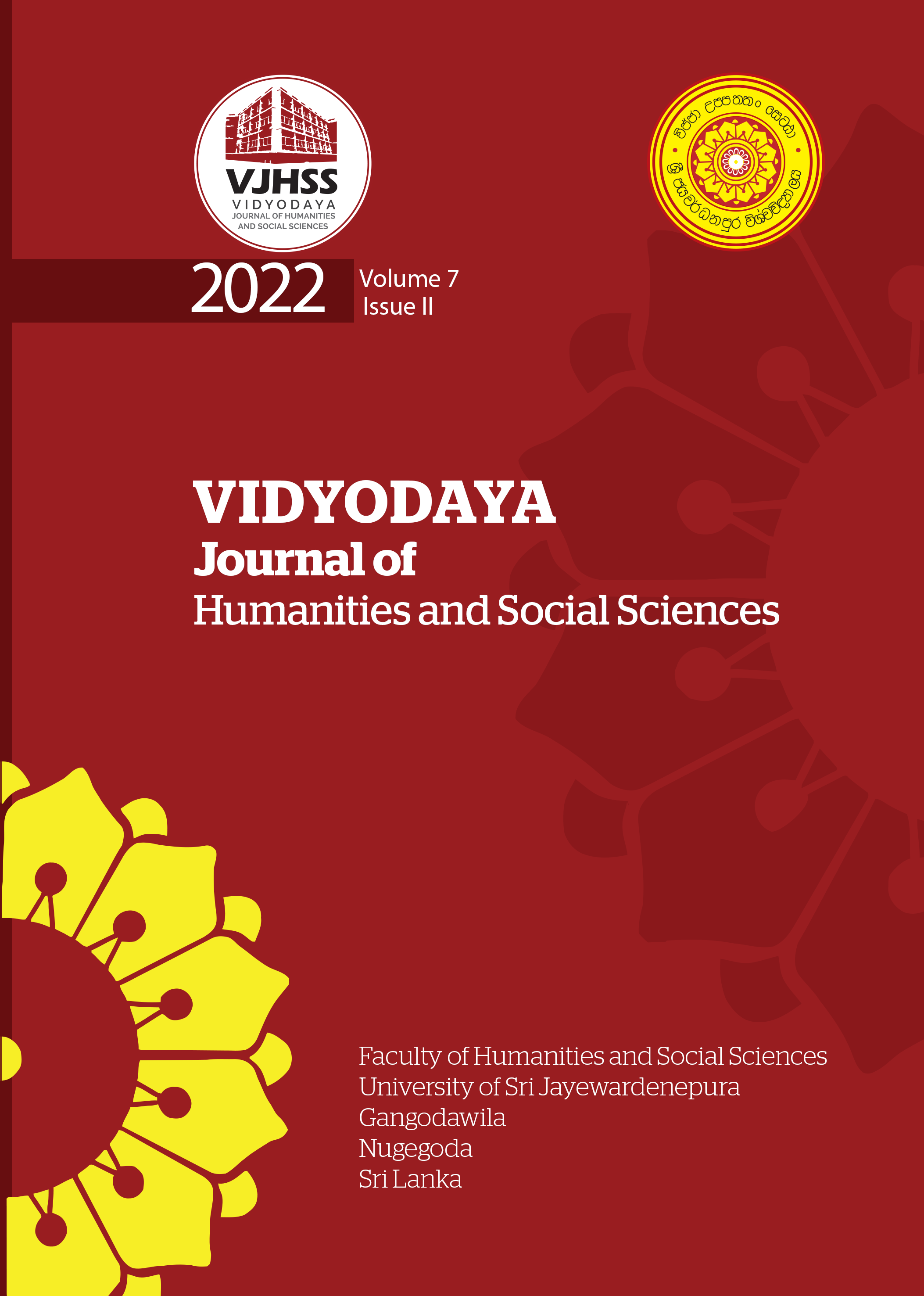The Human - Macaque Conflict and Management Strategies of Sri Lanka (With Special Reference to Uva Paranagama Divisional Secretariat Division in Badulla District)
Abstract
Presently, the human - macaque conflict has become more serious in many areas in Sri Lanka. The main objective of this study is to identify the nature of the conflict and to identify sustainable new strategies of conflict management in the Uva Paranagama Divisional Secretariat Division. Participatory Rural Appraisal (PRA) was the main data collection and analytical method of this study. Problem tree, solution tree, pair-wise ranking, matric ranking, seasonal calendar, and participatory mapping available in PRA were employed to achieve the objectives. In addition, questionnaire survey with a sample of 90 members, interviews and field observations were also used for the primary data collection. Secondary data were collected through literary reviews and institutional data reports. As the data analysis reveals, the nature of the human and physical setting, the rapid breeding of macaques, the extinction of predators, the impact of humans on forest food availability and many other factors have contributed to escalate the conflict in the study area. Several measures have been taken to control the macaques but have failed due to the adaptation of the macaques to them. The study found that less intervention of relevant institutions, less interaction between farmers and institutions, lack of knowledge regarding the conflict and the poverty in the area as the main challenges in managing this conflict in this area. The study, depending on the findings suggests that sterilization of macaques to some extent, growing up of animal predators in the study area, minimizing the usage of natural forest areas for human activities and allocation of lands for settlements according to a land use plan as the sustainable management strategies for this conflict.



